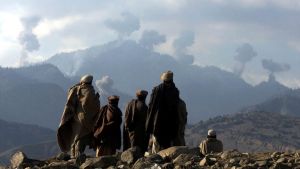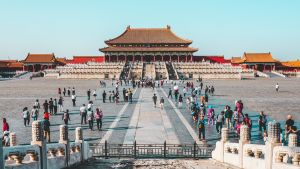After Khan, Pakistan's Political Instability Meets Great Power Competition
 Play Podcast
Play Podcast
About the Episode
Pakistan’s former Prime Minister Imran Khan falsely blamed a United States-led conspiracy for his removal from office last week, feeding anti-American sentiment among his supporters. Brookings’ Madiha Afzal returns to Deep Dish to unpack the ways Pakistan’s political instability interacts with geopolitical competition involving China, Russia, and the United States, and explains why it’s time for the United States to rethink its troubled relationship with the nuclear-armed power.
Like the show? Leave us a rating and review wherever you get your podcasts.




Related Content
 Global Politics
Global Politics
Pakistan's military leaders lauded the Taliban's takeover of Afghanistan this week. But will Pakistan's domestic threats—from a shaky economy to a rise in domestic terrorism—threaten the country's stability as a result of new leadership next door?
 Global Politics
Global Politics
Bloomberg's Nisid Hajari and Paul Staniland of the University of Chicago join Deep Dish to discuss how the decision to revoke Kashmir's special autonomy has once again torn open tensions between India and Pakistan.
 US Foreign Policy
US Foreign Policy
Winning hearts and minds doesn't defeat insurgent groups, author Jacqueline Hazelton argues. So why does the United States still rely on counterinsurgency?
